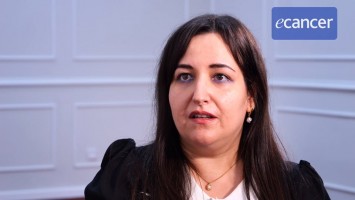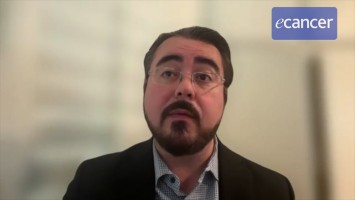War on Cancer
Obesity and tobacco use increasing global cancer burden
Dr Cary Adams - Chief Executive Officer, UICC
We’re the last panel of the day and we’ve been given the brief to summarise what we think are the key issues that we need to address on the war on cancer across Europe but also more globally. I’ve been listening very hard today on certain issues that have been raised but I’m actually going to draw on a couple of other things which I think are important. The first thing is that if we are really serious about addressing cancer globally and within Europe then we have to address the risk factors. Something which has not come up today is the issue of tobacco which causes 20% of all cancers, 70% of all lung cancers. It’s a single product, it’s something which the countries in Europe have committed to resolve over time by signing in the framework convention for tobacco control. Progress on that has been slow and I believe is something which we as a community who are interested in the health of people, particularly with cancer, we should be addressing tobacco. So there are lots of things that can be done in that space and I’d hope we’d get a lot of co-ordinated activity out of countries around Europe in the next few years to make a real dent on what is a growing number of women smoking and in some countries a lot of adolescents starting to smoke as well. So it’s a major issue, so the risk factors.
I’ll also touch on obesity. Obesity, because of a slightly different perspective than maybe others have had, we know that obesity accounts for about 3.6 – 4% of all cancers which, notionally, is quite a low risk factor for cancer. But obesity is really driving non-communicable diseases right around Europe – diabetes, heart disease, strokes, you name it – it’s quite an appalling link between the two and we know that over the next ten, twenty or thirty years the levels of obesity will continue to rise. Now what that means for the health infrastructure across Europe is it’s going to have more and more demand for the long-term chronic disease demand and that, in effect, will affect cancer because if more money is put into chronic disease management then of course there will be less money available to address cancers as they emerge over the next few years. So there is a real issue about the ability of Europe to pay for the health burden that it faces in the future so something like obesity is something which has to be addressed because otherwise we’re going to run out of money, basically.
The second thing I’ll be talking about is about the need to bring education to the public in a more understandable format so they’re not misled by the press which often grabs, or the headlines which over a period of time I’m sure they mislead the vast majority of individuals, so that people are more aware of what cancer symptoms are and therefore can present themselves to the primary healthcare workers and the doctors in that space so that they’re presented earlier for treatment. We know if we can bring people into treatment at stage 1 and 2 of cancer then the chance of survival goes up tremendously; stage 3 and 4 it becomes a very awkward and difficult cancer to actually treat. So that’s a key thing that we can do across Europe is better education of schools, of children, of the general public and also primary healthcare workers so we can identify cancer earlier and get it presented and treated earlier.
The third aspect which I think is important is to recognise that Europe plays a role in the global health agenda. Whilst probably over time there will be some control in Europe with cancer growth, I do believe that we are facing a tsunami of cancer growth right across low and middle income countries and Europe has played a role in the past in helping those countries address cancer as it emerges. I believe we need to step up to that role in the coming years. So there’s a real role there to help low and middle income countries.
How can this be achieved?
We can do it through, for example, most of the overseas development assistance that comes out of Norway or the UK tends to be funnelled into communicable diseases in low income countries and that should change now that we have the new sustainability development goals. I would like to see more money earmarked specifically to address that cancer burden. I think that there is great opportunity to expand the amount of training and education that we do by bringing people to Europe and also sending people to Africa, for example, to train up oncologists, to train up researchers and scientists. And even bring about a change in the way that we actually monitor and control cancer - the quality of registries across Africa, for example, and most of South America are not particularly good. We benefit from having the data in this part of the world and we can do a lot to help support registries development in all low and middle income countries. That would make a big difference.








